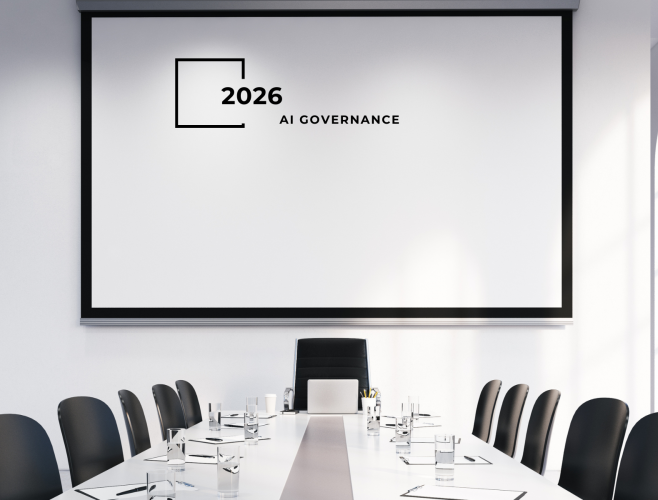Patrick Upmann – Media & Publications | AI Governance Keynote Speaker & Thought Leader
Patrick Upmann is an internationally published AI Governance thought leader, keynote speaker, and architect of the AIGN OS – The Operating System for Responsible AI Governance.
His work is DOI-registered research paper, featured in Africa Magazine, and recognized on global stages such as the TRT World Forum.
Upmann’s research and leadership establish him as one of the world’s foremost standardsetters for Responsible and Systemic AI Governance.
Academic Publications
DOI-registered research paper on AI Governance – The DOI-registered AIGN OS research papers together constitute the world’s first scientifically formalized operating system for AI governance.
1. AIGN OS – The Operating System for Responsible AI Governance
DOI-registered research paper, 2025
Abstract:
This landmark paper introduces the 7-layer AIGN OS architecture, framing AI governance as a systemic operating system. It synthesizes regulatory frameworks, industry practices, and policy debates into a unified governance stack. The paper argues that AI governance must evolve from compliance checklists to a living infrastructure, comparable to financial reporting and cybersecurity standards. By combining global regulation, ISO standards, and governance-by-design principles, AIGN OS is positioned as a certifiable and scalable framework for enterprises and regulators worldwide.
2. AIGN OS – AIGN OS -AI Agents: The AI Governance Stack as a New Regulatory Infrastructure
DOI-registered research paper, 2025
Abstract:
This paper explores the paradigm shift from SaaS to AI Agents. As autonomous systems increasingly replace traditional applications, governance must be reimagined as a regulatory infrastructure stack. The paper shows how agentic AI challenges attribution, liability, and system control, and why governance cannot remain an afterthought. It introduces the concept of the AI Governance Stack as a regulatory meta-layer, ensuring systemic accountability for agent-driven economies. Positioned within broader debates in law, economics, and computer science, this publication reframes AI governance as a structural requirement for digital markets.
3. AIGN Systemic AI Governance Stress Test
DOI-registered research paper, 2025
Abstract:
Inspired by financial stress-testing methodologies, this paper introduces the first systemic stress test for AI governance. It provides regulators, auditors, and enterprises with a framework to evaluate resilience, compliance, and trust under different scenarios. Drawing on parallels with banking regulation, the stress test measures exposure to risks such as bias drift, shadow AI, and governance fragmentation. By operationalizing governance readiness, the paper offers a diagnostic tool to move from abstract principles to measurable safeguards. This contribution positions AI governance as auditable and enforceable within systemic infrastructures.
4. AIGN – AI Governance Compliance Framework for SAP® S/4HANA
DOI-registered research paper, 2025
Abstract:
This publication demonstrates how AI governance can be operationalized inside enterprise systems. Using SAP® S/4HANA as a reference model, it translates compliance principles into concrete governance controls and integration patterns. The paper outlines how ERP infrastructures can embed AI trustworthiness, regulatory alignment, and accountability-by-design. It also highlights the implications for global enterprises managing large-scale, mission-critical systems. By bridging governance theory with enterprise practice, this paper positions AIGN as the first governance framework directly applicable to ERP transformation and AI adoption at scale.
5. AIGN OS – Trust Infrastructure – Certification, Licensing, and Market Enforcement for Responsible AI
DOI-registered research paper, 2025
Abstract:
This publication completes the systemic architecture of AIGN OS – The Operating System for Responsible AI Governanceby introducing its missing enforcement layer: the AIGN Trust Infrastructure.
It establishes a certifiable, licensable, and globally interoperable model that transforms AI governance from voluntary principles into enforceable market infrastructure.
Built on three pillars — Trust Labels, Certification Pathways, and Licensing Logic — it enables continuous assurance, visible accountability, and contractual enforceability across sectors and jurisdictions.
By aligning directly with the EU AI Act, ISO/IEC 42001, and OECD AI Principles, the paper defines governance as a measurable system of trust.
It further introduces machine-readable attestations, accreditation rules for assessors, and a global Trust Registry that turns certification into a market signal and license to operate.
Through case studies in education (Seoul 2025), enterprise (ERP integration), and government (readiness benchmarking), it demonstrates practical adoption and regulatory interoperability.
Ultimately, this work establishes scientific prior art for certification, licensing, and trust enforcement in AI governance—marking a decisive shift from compliance frameworks to a global trust economy.
6. The AIGN Academy – Institutionalizing Systemic AI Governance Education
DOI-registered research paper, 2025
Abstract:
This publication introduces the education layer of AIGN OS – The Operating System for Responsible AI Governance, transforming its research architecture into a living global learning infrastructure.
The AIGN Academy institutionalizes Systemic AI Governance Education — bridging the gap between regulation, ethics, and organizational competence. It establishes a certifiable education framework that turns learning itself into evidence of governance. Built on three dimensions — Curricular Architecture, Certification Pathways, and Trust Label Accreditation — the Academy operationalizes responsible AI as an applied discipline. By aligning directly with the EU AI Act, ISO/IEC 42001, and the OECD AI Principles, it provides a globally interoperable model for competence assurance and institutional readiness. Through case studies in higher education (Seoul 2025), enterprise training, and public-sector capacity building, the paper demonstrates how AI governance can be embedded into curricula, certification systems, and national education policies.
Ultimately, the AIGN Academy defines education as governance infrastructure — a systemic foundation where knowledge becomes a form of accountability and trust is learned as a measurable competence.
7. The ASGR Index – Establishing the First Global Benchmark for Systemic AI Governance Readiness
DOI-registered research paper, 2025
Abstract:
This publication introduces the diagnostic layer of AIGN OS – The Operating System for Responsible AI Governance, establishing the AIGN Systemic Governance Readiness (ASGR) Index as the world’s first quantitative benchmark for AI governance maturity. The ASGR Index transforms abstract principles into measurable systemic readiness — providing regulators, enterprises, and institutions with a unified model to assess their governance infrastructure.Structured across four domains — Policy Alignment, Technical Governance, Organizational Maturity, and Trust Assurance — the ASGR Index creates a globally interoperable baseline for comparing governance capabilities across sectors and nations. It integrates core frameworks such as the EU AI Act, ISO/IEC 42001, OECD AI Principles, and NIST AI RMF, enabling alignment between compliance, certification, and continuous improvement. Through its sectoral variants — Global-ASGR, Finance-ASGR, Healthcare-ASGR, and Energy-ASGR — the Index provides granular insight into how AI governance readiness can be benchmarked, visualized, and improved over time. Applied in organizational audits, national AI strategies, and certification journeys, the ASGR Index functions as a systemic compass that guides institutions from principle to proof.
Ultimately, this paper defines readiness as the new unit of trust — positioning the ASGR Index as the quantitative backbone of Systemic AI Governance and a global reference standard for measuring, comparing, and accelerating responsible AI implementation.
8. The AIGN Declaration on Systemic AI Governance: Defining the Operating Principles for the Age of Intelligent Systems
DOI-registered working paper, 2025
Abstract:
This publication codifies the foundational philosophy and systemic architecture of AIGN OS – The Operating System for Responsible AI Governance. It establishes the seven operating principles that define how intelligent infrastructures can remain accountable, transparent, and interoperable across jurisdictions and cultures. Grounded in the evolution of global governance—from the OECD AI Principles (2019) and UNESCO Ethics Recommendation (2021) to ISO/IEC 42001 (2023) and the EU AI Act (2024)—the AIGN Declaration on Systemic AI Governance proposes a unifying meta-framework that connects ethical intent, legal obligation, technical control, and cultural literacy into one coherent architecture of trust. Structured around seven interdependent systemic principles—Systemic Governance, Responsibility by Design, Continuous Assurance, Transparency of Intent, Global Interoperability, Education and Culture, and Trust Infrastructure—the Declaration translates normative aspirations into operational capability. It reframes governance as architecture rather than administration, arguing that the sustainability of intelligent civilization depends on embedding responsibility within the design logic of AI systems themselves.Functioning as the constitutional layer of the AIGN OS ecosystem, the Declaration serves as a structural bridge between ethical frameworks and regulatory instruments. It enables interoperability of trust across borders, transforming compliance into capability and regulation into living architecture.
Ultimately, this paper marks a civilizational inflection point: the shift from governing technology through external control to governing it through systemic design. It defines Systemic AI Governance as the new operating system of the intelligent age—where architecture becomes the medium of trust, and trust the infrastructure of progress.
Media Features
AI Governance in international media
- Africa Magazine (Feature on AI Governance in Africa, 2025)
- Interview & commentary in global AI governance discussions
- Contributions to policy & regulatory debates
- Academic Platforms: Recognized by DOI-registered research paper for multiple Top Downloaded Papers in Governance eJournals
Speaking Recognition
- TRT World Forum 2025, Istanbul – AI Governance Keynote Speaker
Keynote: Democratising AI Innovation, Governance and Access - Geno Akademie – 21 sessions with IT & Security leaders in banking
21 sessions with IT and Security Leaders in Banking & Finance - Seoul Prep School – first AI Education Trust Label in Asia (South Korea)
Launch of the first AIGN Education Trust Label in Asia (2025)
MEDIA PROFILE & EXPERTISE AREAS
Core Topics
- AI Regulation & the EU AI Act – What the new regulation means for businesses, governments, and citizens
- Systemic AI Governance – Why responsible AI must evolve from compliance to infrastructure
- AI Readiness & Stress Testing – How organizations can measure and benchmark systemic AI maturity
- AI Trust Labels – Building transparent and auditable assurance systems for responsible AI
- AI in Education – Embedding governance and ethics in the next generation of digital learning
- The AIGN OS – The world’s first operating system for responsible AI governance
- Global AI Policy Trends – Comparing the governance paradigms of Europe, the U.S., and Asia
- Enterprise AI Governance – Integrating compliance, trust, and control in SAP and enterprise ecosystems
- AI Governance Research & Publication – Author of six peer-reviewed papers recognized among the Top SSRN Downloads across six international Governance eJournals
MEDIA BIO (PRESS-READY)
Patrick Upmann is the architect and author of the AIGN OS – The Operating System for Responsible AI Governance, recognized as a global reference model for AI regulation, compliance, and trust infrastructure.
This recognition signals a broader paradigm shift — from policy to infrastructure — in how societies approach the regulation and ethical oversight of artificial intelligence.
Upmann is a Speaker at the TRT World Forum 2025 in Istanbul, addressing “Democratising AI Innovation, Governance and Access.”
As a globally recognized expert, he advises regulators, policy institutions, and enterprises on embedding ethics, law, and technology into coherent, auditable governance architectures — enabling systemic trust in AI ecosystems.

